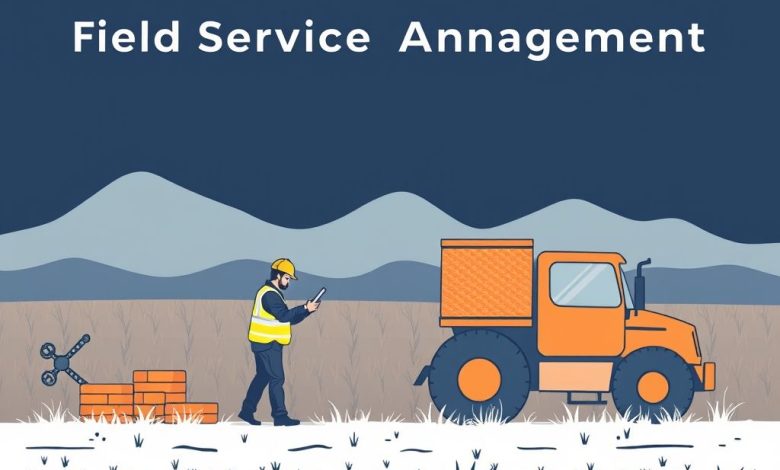Field Service Management for Time-Sensitive Field Contracts

Field Service Management for Time-Sensitive Field Contracts
Introduction
Field service management (FSM) is a critical aspect of modern business operations, particularly for companies dealing with time-sensitive contracts. These contracts require prompt attention and efficient execution to ensure customer satisfaction and maintain competitive edge. In this article, we will explore the intricacies of FSM for time-sensitive field contracts, focusing on strategies, tools, and best practices that can enhance operational efficiency and effectiveness.
The Importance of Time-Sensitive Field Contracts
Time-sensitive field contracts are agreements between a service provider and a client where timely completion of work is crucial. Examples include emergency repairs, seasonal maintenance services, and project-based assignments with strict deadlines. These contracts demand precise planning, swift execution, and real-time communication to meet the specified timelines.
Key Components of Effective Field Service Management
To excel in managing time-sensitive field contracts, organizations must implement several essential components:
- **Advanced Scheduling Systems**: Implement robust scheduling software that can handle complex bookings, prioritize jobs based on urgency, and optimize route planning for maximum efficiency.
- **Real-Time Communication**: Utilize mobile applications and cloud-based platforms to enable seamless communication between field technicians, dispatchers, and customers. This ensures quick updates on job status and any changes in schedules.
- **Resource Allocation**: Develop a sophisticated resource allocation system that can dynamically assign tasks to available technicians based on their skills, location, and current workload.
- **Customer Relationship Management (CRM)**: Integrate CRM systems to maintain detailed customer records, track service history, and identify potential issues before they escalate into emergencies.
- **Performance Metrics and Analytics**: Establish key performance indicators (KPIs) such as first-time fix rates, response times, and customer satisfaction scores to continuously improve service quality.
Best Practices for Managing Time-Sensitive Field Contracts
Implementing the following best practices can significantly enhance the management of time-sensitive field contracts:
- **Prioritize Jobs**: Develop a systematic approach to categorize and prioritize jobs based on urgency and importance. This ensures that critical tasks receive immediate attention while less pressing ones are scheduled accordingly.
- **Optimize Route Planning**: Leverage geographic information systems (GIS) and machine learning algorithms to create optimal routes for field technicians, reducing travel time and increasing overall efficiency.
- **Preventive Maintenance**: Implement regular preventive maintenance schedules to proactively address potential issues before they become emergencies, thus reducing the need for last-minute rushes.
- **Continuous Training**: Provide ongoing training to field technicians on new technologies, industry-specific knowledge, and soft skills to ensure they can handle a wide range of situations efficiently.
- **Customer Education**: Educate clients on the importance of providing accurate information and maintaining clear lines of communication to facilitate smooth service delivery.
Challenges in Field Service Management for Time-Sensitive Contracts
Despite the numerous benefits, managing time-sensitive field contracts comes with its own set of challenges:
- **Last-Minute Changes**: Unexpected cancellations or rescheduling requests from customers can disrupt carefully planned schedules.
- **Technician Availability**: Ensuring adequate staffing levels during peak periods or when multiple urgent jobs arise simultaneously can be challenging.
- **Weather Conditions**: Inclement weather may affect travel times and job completion, potentially impacting overall efficiency.
- **Complexity of Tasks**: Some jobs may require specialized skills or equipment, which can lead to delays if not properly managed.
- **Data Security**: Handling sensitive customer information and company data requires robust security measures to prevent breaches.
Conclusion
Effective field service management for time-sensitive field contracts is crucial in today’s fast-paced business environment. By implementing advanced scheduling systems, leveraging real-time communication tools, optimizing resource allocation, and adhering to best practices, organizations can significantly improve their ability to meet tight deadlines and deliver high-quality service.
As technology continues to evolve, it’s essential for field service managers to stay abreast of emerging trends and innovations in FSM. From artificial intelligence-powered predictive maintenance to augmented reality-assisted troubleshooting, the future of FSM looks promising for enhancing efficiency and customer satisfaction in time-sensitive field contract management.
By combining human expertise with cutting-edge technology, organizations can build robust FSM systems that not only meet but exceed customer expectations in the realm of time-sensitive field contracts.




